Nội Dung Chính
(Page 147)
Lesson A
| Simple Present |
| We use the simple present to talk about: • habits and routines: I start work at nine o'clock. • permanent situations: He has a degree in teaching. • general facts: Many restaurants in the city • at 10 p.m. |
| Affirmative Statements | Negative Statements |
| I / You live in Hà Nội. Alison catches the bus at five thirty We / They go to the movies every Saturday. | I / You don't eat breakfast. Alison doesn't catch the bus at six thirty. We / They don't go to the movies every Friday. |
| Yes/No Questions | Short Answers |
| Do you live in this city? Does Alison catch the bus at 5:30? Do we / they go to the movies on weekends? | Yes, I do. / No, I don't. Yes, she does. / No, she doesn't. Yes, we / they do./ No, we / they don't. |
| Wh-Questions |
| Where do you live? When do you catch the bus? What time does he finish work? | In Bogotá. At 8:00. At 5:00. |
Spelling rules with he / she / it + -s:
• Most verbs: live → lives, start → starts, work → works
• Verbs ending with -s, -sh, -ch, o, -x, -z: finish → finishes, watch → watches, go → goes
• Verbs ending with consonant + -y: study → studies, fly → flies
• Irregular verbs: be → is, have → has
A Underline the correct forms of the verbs.
1. He live / lives in Brasilia.
2. She work / works at a college.
3. I get up / gets up at seven o'clock.
4. Rafael and Magaly go / goes to the movies every Thursday night.
5. We catch / catches the bus to school.
6. The store open / opens at nine o'clock.
7. I don't drink / doesn't drink tea or coffee.
8. Chen don't play / doesn't play the piano.
B Match the questions to the answers.
1. What do you do? __C__
2. Do you live in Tokyo? ______
3. Where do you study English? ______
4. Does Eric work here? ______
5. What time does Helen catch the bus? ______
6. Do they watch TV? ______
a. Yes, he does. d. At a language school.
b. No, they don't. e. No, I don't. I live in Kyoto.
c. I work in a bank. f. At twelve o'clock.
C Write the he / she / it form of these verbs.
1. watch __watches_ 2. do __________ 3. drive __________
4. take __________ 5. teach __________ 6. play __________
7. marry __________ 8. make __________ 9. go __________
10. dance __________
(Page 148)
Lesson C
Adverb of Frequency + Verb
We use adverbs of frequency to say how often we do something:
| I always get up at seven o'clock. He usually takes the bus to work. You often go to the movies on weekends. She sometimes eats out in the evening. We rarely have parties. They never finish work at five. |
| Word Order |
| Subject | Adverb of Frequency | Verb | |
| We | always | give | presents at Christmas. |
| We | never | dance | in the streets at Christmas. |
| Subject | Be | Adverb of Frequency | |
| Christmas | is | always | in December. |
| Carnival | is | usually | in March. |
| Most adverbs of frequency come before the verb, unless the verb is be. |
D Look at the table and write sentences with the adverbs of frequency.
| Movies | Park | |
| Sam | sometimes | never |
| Jane | always | often |
| Carlo and Donna | rarely | sometimes |
1. Sam / movies __Sam sometimes goes to the movies.__________________
2. Carlo and Donna / the park. ____________________________________________
3. Jane / movies ___________________________________________________________
4. Carlo and Donna / movies ______________________________________________
5. Jane / park ______________________________________________________________
6. Sam / park ______________________________________________________________
E Check (✔) the sentences with the correct word order. Rewrite the other sentences.
1. We always celebrate Thanksgiving in November. ✔
2. I go never to the park. I never go to the park.
3. They don't start often work at nine.
4. He sometimes finishes early.
5. Kim and Mai often speak English together.
6. I watch TV always in the evening.
7. Sue rarely catches the bus to work.
8. My brother remembers never my birthday.
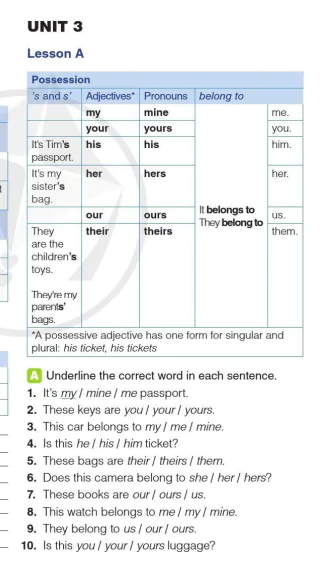
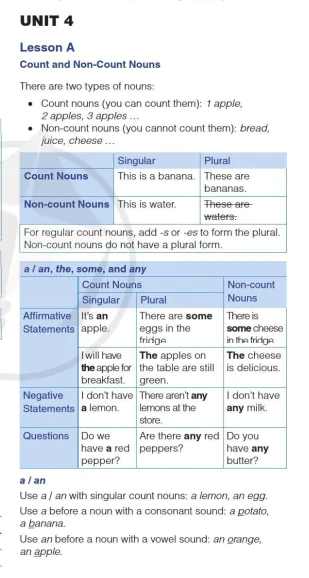

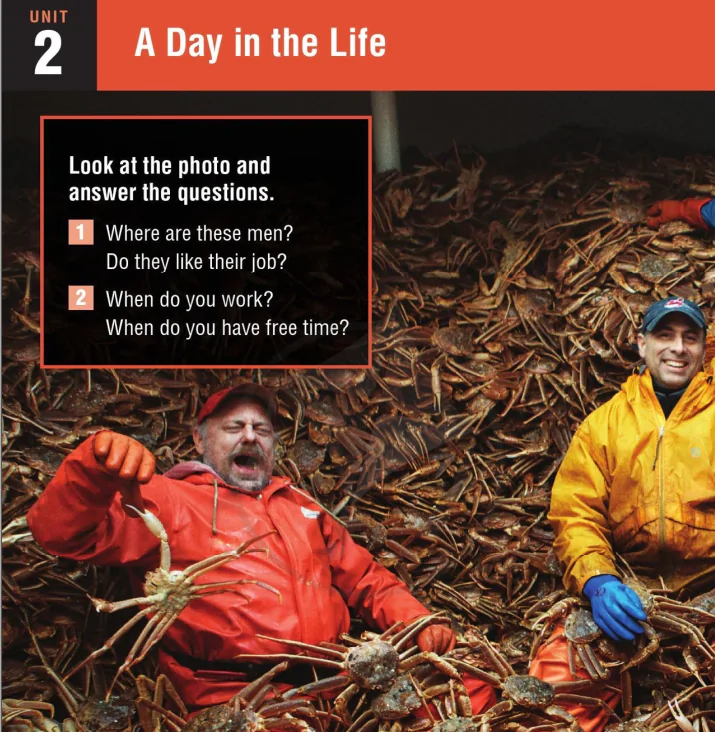










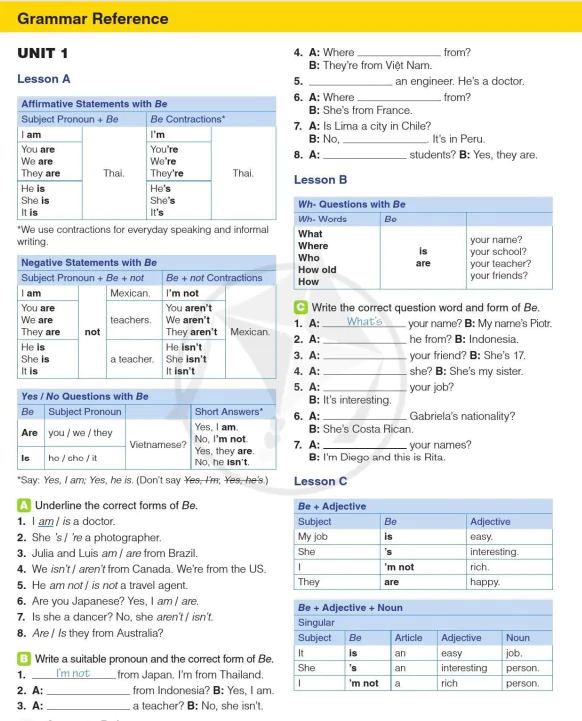

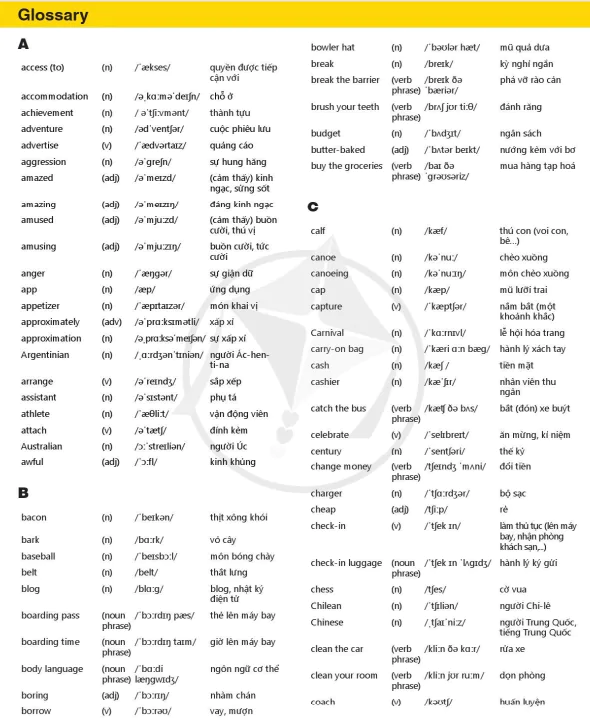

















Bình Luận
Để Lại Bình Luận Của Bạn